Roz Posley Invites You To Get Outside of Your Bubble
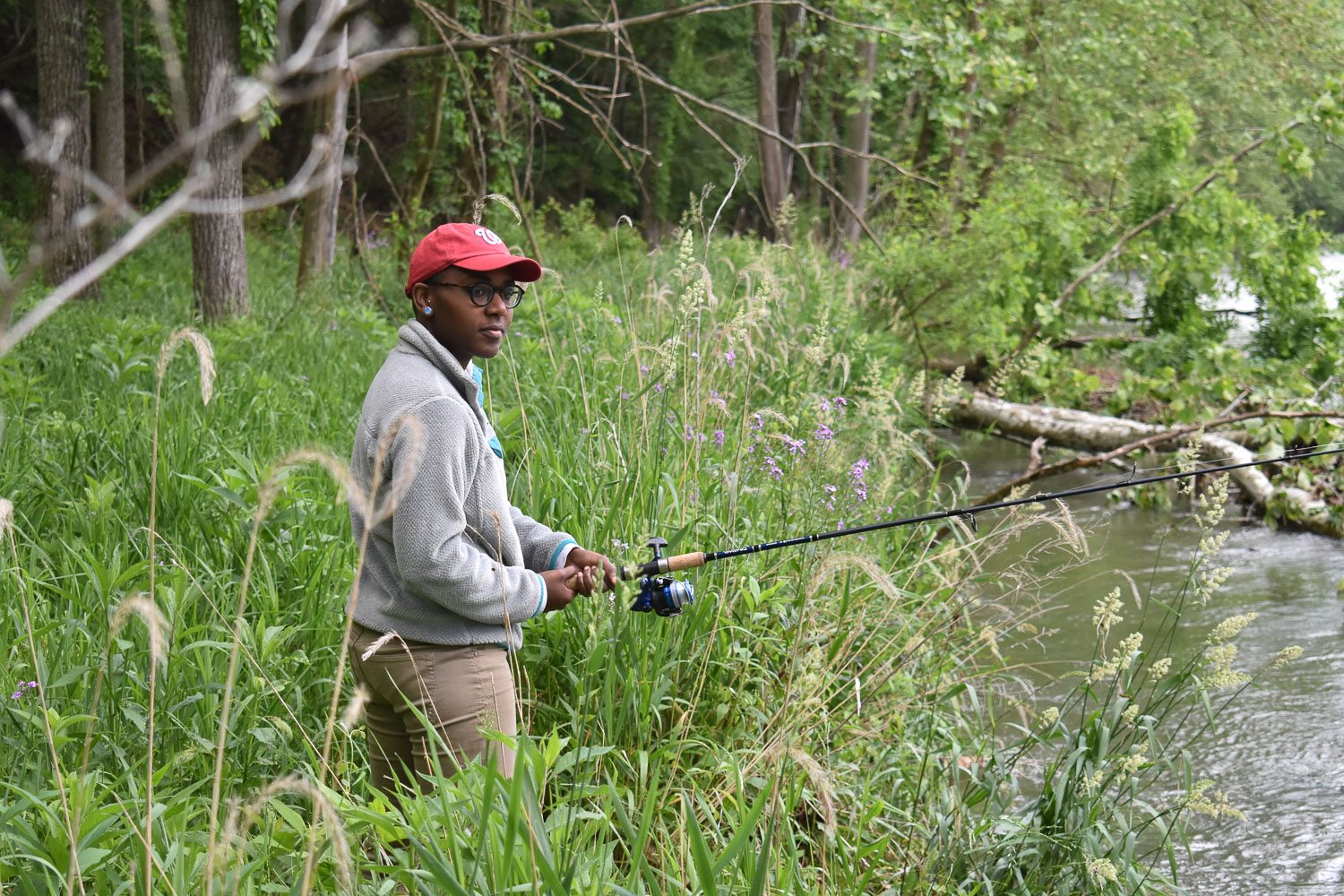
Roz Posley Invites You Outside of Your Bubble
Interview by Leslie Carvitto
Photos by Logan McDowell
I first heard Roz Posley speak at the LGBTQ Summit in Seattle, WA this past October. Roz was a part of a panel discussion titled, “The Mountains are calling, but how do we answer?” where they spoke about the specific barriers the LGBTQ community faces in accessing the outdoors. Although I didn’t get to speak with Roz at the summit, we caught up over the phone a few weeks later.
Beyond public speaking engagements, Roz is a data analyst and outreach coordinator for public schools in Washington DC, a field scout for Hipcamp, and a writer behind Adventures with Chaco.
We spent an hour discussing Roz’s family and important outdoor experiences they’ve shared, along with what big name brands can do to foster an inclusive community in the outdoor industry. For Roz, it’s not just about being outdoors, it’s about getting people outside of their usual bubbles and into new spaces so they can experience for themselves.
This interview has been condensed for brevity.

Roz fishing
Meet Roz
L: At the LGBTQ summit, you mentioned that you’ve always enjoyed getting outside, but that a road trip with your partner 3 years ago was when you learned a lot of outdoor skills. Can you share what that road trip was like for you?
R: Initially my partner and I just wanted to go down to Tennessee to visit Nashville and the Smokies. But then I told my best friend our plans and she convinced us to visit her in Colorado as well. So we went on a 19 state road trip to Colorado! Although I had spent time on family farms with my best friends and at sleepaway camps, I’d never gone to state parks and paid for an overnight there. That’s something my family just didn’t do. We went into the experience not knowing that camping was such a big deal because neither of us had done it.
That first night it started raining so we had our first experience of setting up our tent and learning how to build a fire in the rain. I think we had some firestarters or something and we were just like, “We’re going to do this! We’ve watched enough Survivor to know what we have to do.”
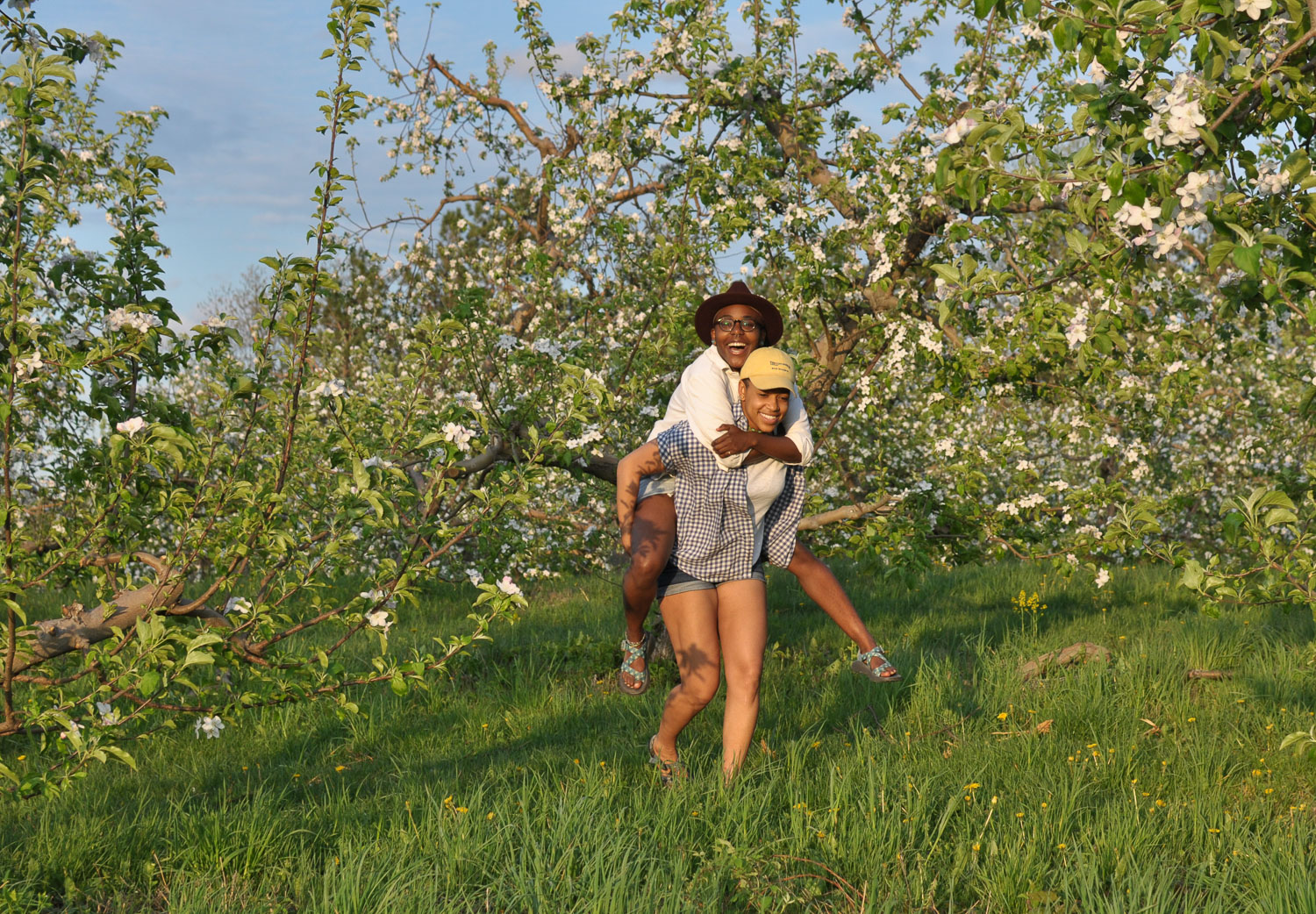
Roz with her partner Jaz.
By the end of the trip, we were able to set up our tent super quick and weren’t worried about whether it was raining or too dark. On our way back we got super nostalgic about our experience and were really accustomed to our lifestyle on the road. Since then we’ve just been like, “When are we going to do that again?”
L: How long was the trip altogether?
R: Almost a month. We left in the middle of July and came back August 10th. It was 19 states of fun and learning.
L: Do you think differently about the outdoors now?
R: I do. When we first started, I was definitely nervous and uncertain. As time went on, I felt a comfort within myself about travel and camping. At some state parks, I felt super secure but Kansas was one of the places I was like “uhhh I don’t know about this.” I felt that way about some places in Kentucky, too.
As a person of color, seeing all the American flags hanging up everywhere, I was like ok, they are patriotic and this is their land and all these things, but at the same time it made me question, why are they waving that flag? Is it because they are super right wing? Or is just because they are proud of this state park? Differentiating between those types of people is something that came along the way.
L: You and your family travel a lot! Can you tell me about them?
R: I’ve got my greater family which is my direct family, and then there is my romantic family. My initial partner Lo and I have been together for five years, and we’ve been with our partner Jaz for a year and a half. And then we have our dog Chaco, and he’s pretty cool.
So we are Adventures with Chaco, the three of us collectively and our dog. We try and travel with him as much as possible because he loves the outdoors and is such a trail dog. But he gets carsick. So for the time that we’re in the car, it’s the worst time of his life. But it’s worth it! We’ve never written about Chaco’s car sickness before but that’s a blog post that we really want to do to speak to other dog owners who deal with it. I mean he’s got a diaper! We’ve got all the things to make sure that he can get to where he wants to go.
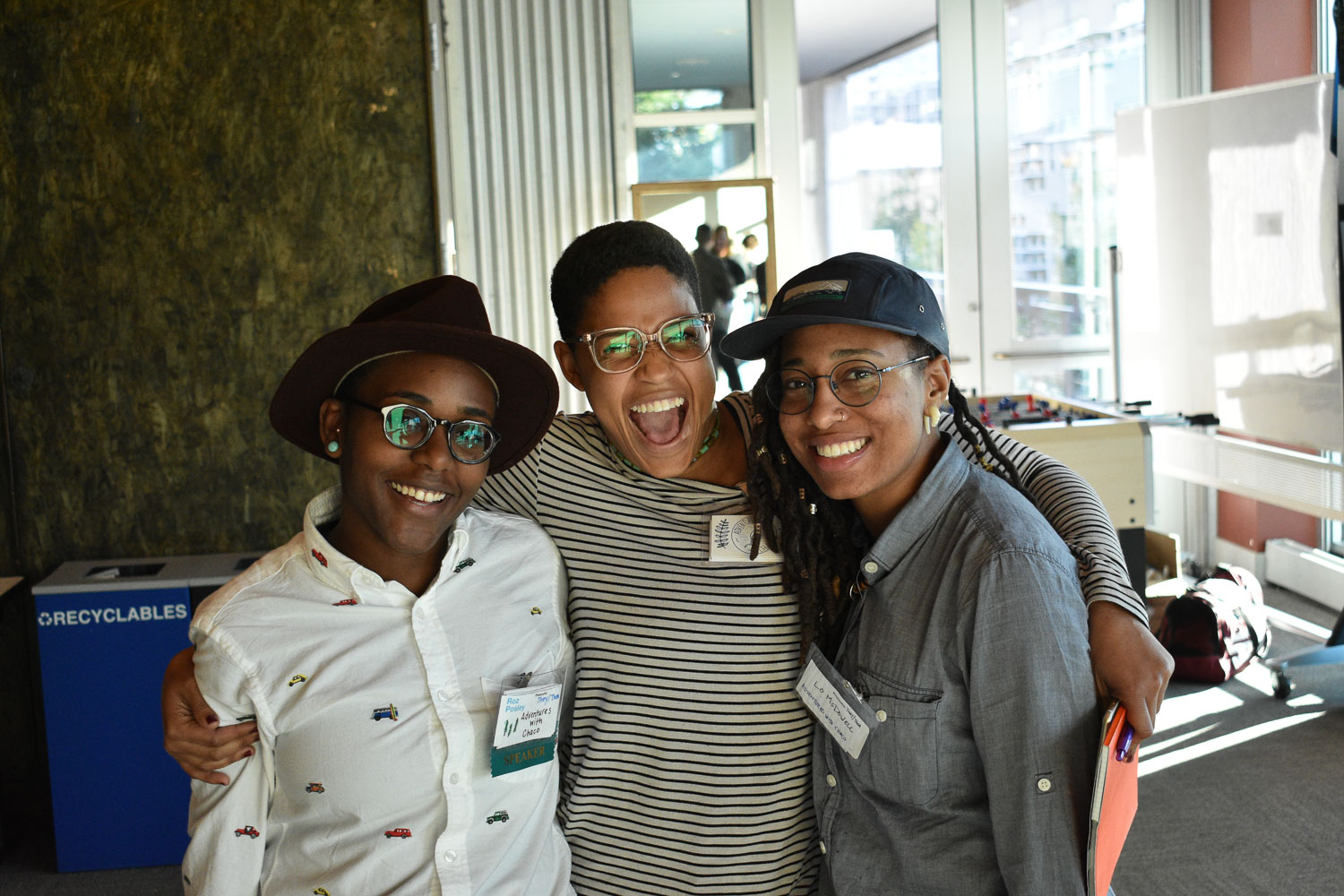
Roz and her partners at the LGBTQ Summit in Seattle, WA
L: What is one of the most recent trips you all took?
R: Last winter we did a North East road trip between Pennsylvania, New York, New Hampshire, Vermont, and Massachusetts. We were camping during Christmas Eve and Christmas in New York, freezing in cold weather and super bundled up in our tent. You hear a lot about non-POC camping outdoors at any temperature, but to hear about people of color camping outdoors at below freezing level is also important.
We love it. Something about camping outside in the cold makes you feel so much more alive. It pulls something out of you, like I actually need to build this fire in order to stay warm versus I want a fire to cook my meal and talk over. It brings out the human in you and makes you feel alive.
L: What drives you to share these and other experiences on your blog, Adventures with Chaco?
R: A lot of people struggle to get out of their bubble, especially people from urban areas. So one of the things that drives me to write is to get people to know that we (my partners and I) are people of color with multiple intersectionalities and we are still able to visit these places.
Don’t get me wrong, we have visited places where we are not pleased with our experience, but I think that it’s worth something to try. A lot of times if you’re not within a space you can’t really speak to a lot of things that occur there. So, for example, as a person of color, I know that there is a negative stereotype about conservative [prejudiced] people in the Midwest. My question to those people who buy into this stereotype is, have you ever been? I know this is what’s being said about the Midwest, but have you ever experienced it directly?
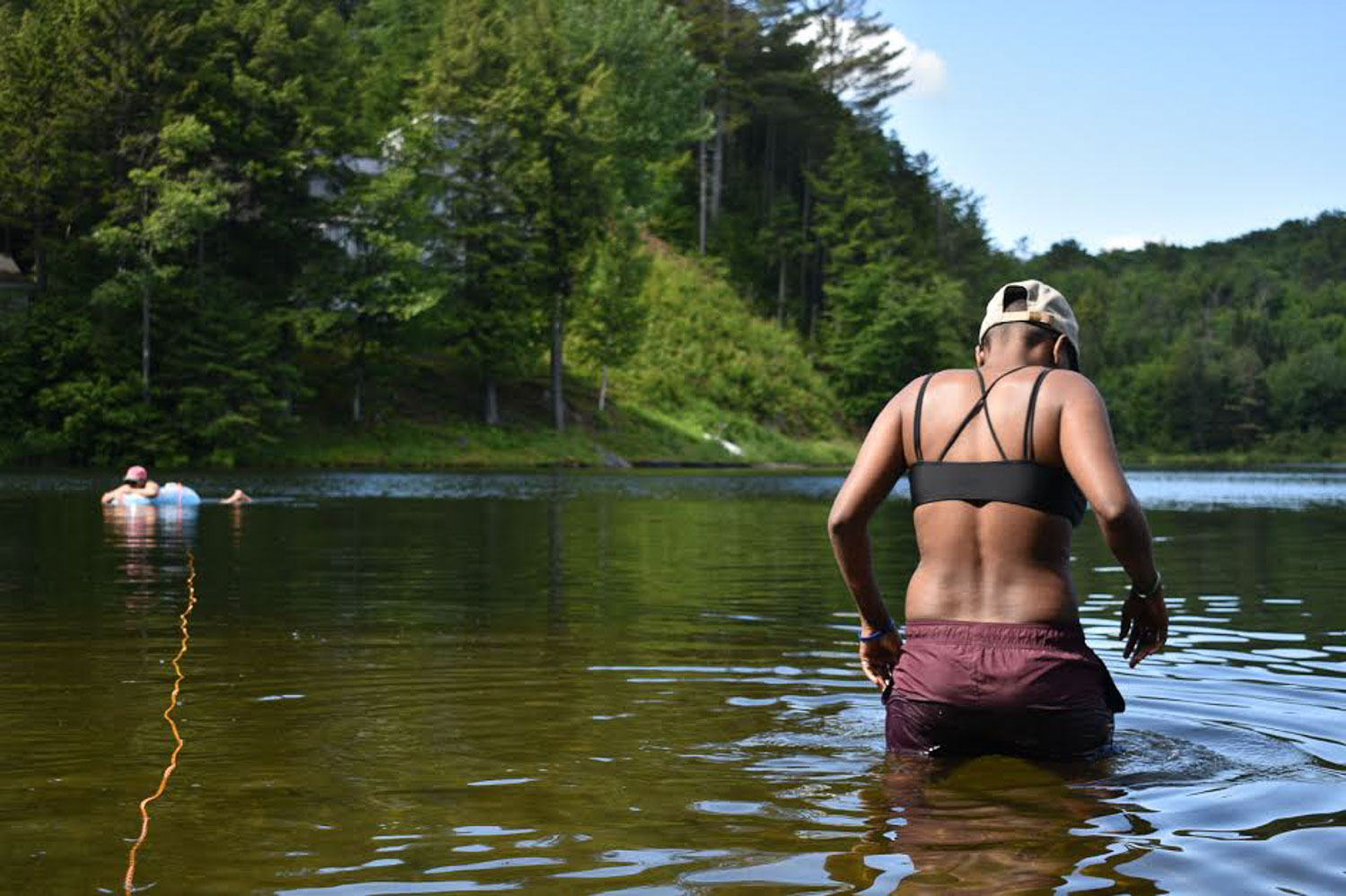
It’s important for people to have their own experiences in places that they feel negatively about. For me, I like to explore and get outdoors as much as possible because I want to know that what I believe is also factual.
I want people to know that we (my partners and I) are people of color with multiple intersectionalities and we visit and love these outdoor places. Don’t get me wrong, we have visited places where we are not pleased with our experience, but I think that it’s worth something to try.
I want to share my voice and experiences with other people while also giving them pure and true facts about those spaces. Having your own experiences, getting outdoors, traveling and seeing as much as you can, really contributes to the intellect you hold.
L: You recently went to a panel discussion hosted by Patagonia about diversity in the outdoors. What did the panel talk about?
R: Yes, it was awesome. They showed the documentary “An American Ascent” which is about a team of African American hikers that climb Denali in Alaska. They use a parallel of the civil rights movement throughout the film to represent the mountains that people of color climb both literally and figuratively.
After the showing, there was a panel and Tyrhee Moore, a climber from the film, was there to answer questions. He has been very active in making sure that youth of color are getting outdoors, that they understand the benefits of being outside, and that they are able to access the space. He recognizes a lot of barriers that people of color might experience like cost, travel, and the lack of role models.
There are so many non-POC or white people who are super active outdoors and serve as a role model for other white kids. Black children don’t necessarily see that or have that.
L: I remember at the LGBTQ summit, you mentioned there is a stereotype that people of color don’t like the outdoors.
R: Yes! Even in the documentary, there are people saying those exact words.
But it’s this concept that being outside means you need to be at a national park or camping. Black people are frequently outside when they are having cookouts or taking their kids to the park. We need to be more inclusive about what ‘outdoors’ is, and get people of color to recognize that being outdoors can mean so much.
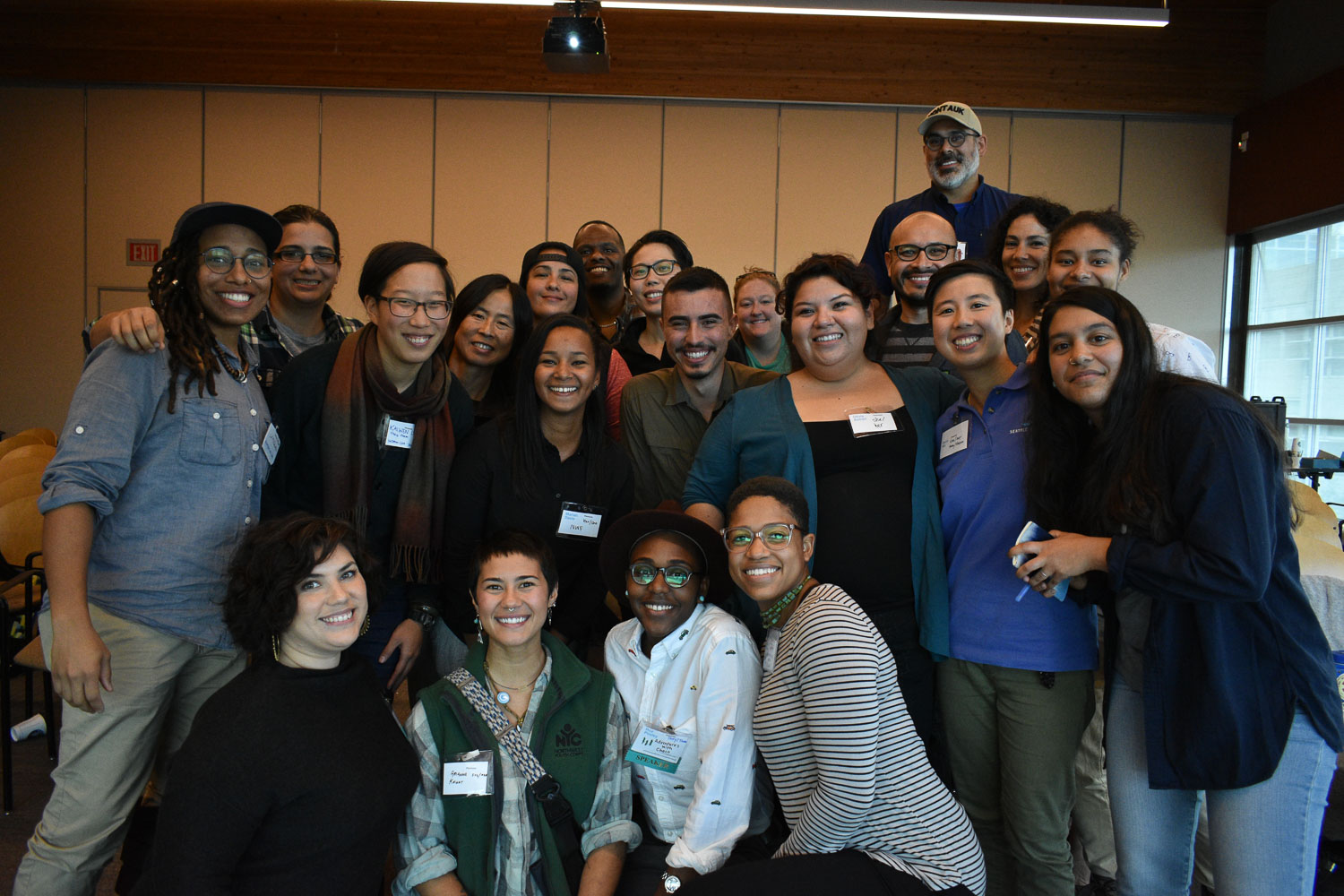
But it’s this concept that being outside means you need to be at a national park or camping. Black people are frequently outside when they are having cookouts or taking their kids to the park. We need to be more inclusive about what ‘outdoors’ is, and get people of color to recognize that being outdoors can mean so much.
L: What other topics did the panel speak about?
R: We talked about how it’s important to make sure that massive companies aren’t doing one off’s in advertising and marketing. They shouldn’t lean on the fact that they did one diversity event and say that’s good enough for the next 5 years. They need to be consistent and make sure they are always running those types of events and that they are always working with these organization to build bonds and trust.
One of the things that came up at LGBTQ summit was that there were people of color not present because they didn’t know it’s a safe space. Companies need to make sure that people know their space is safe and they can do that by building relationships in the community and being consistent with events. I can speak about this panel forever it was so great.
L: What was your strongest takeaway from the evening?
R: My main takeaway is that working in larger groups is much more effective than working on your own. For example, Patagonia paired up with Tyrhee from the film for the event, but from that came so many people that had more to bring to the table.
There were women and women of color present that had a lot to say. The panel was actually dominated by women! Tyrhee was the only male on it and you never see that on a panel. Getting as many people together as possible can be super effective and pull in a larger crowd than you would expect.
Roz Posley was born and raised in Washington DC. She grew up spending time outdoors playing sports, selling girl scout cookies, and in the mountains at sleep-away camp in West Virginia. It is her dream to get as many Queer People of Color outdoors as possible. She stands by SheExplores because they are inclusive and woke!
Be the first to comment